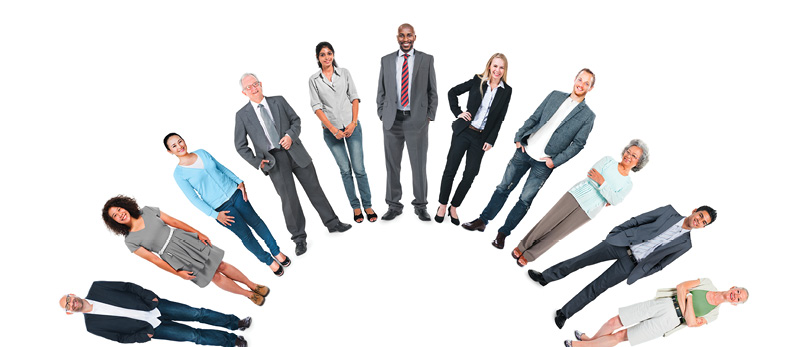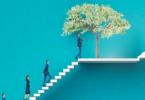Selling homes isn’t enough anymore—work to make the community a better place to live
By Megan Craig
Children in the neighborhood may not know her by name, but they know exactly who Judy McDougal is. “That’s where the mayor lives,” they tell newcomers as they walk past her house.
But she’s not really the mayor. McDougal, CRS, an associate broker with RE/MAX Savannah in Georgia, sells homes in the gated Dutch Island community where she lives. But like many REALTORS® trying to separate themselves from the pack, McDougal doesn’t just sell homes—she’s heavily involved in the community. “I moved into this community and realized it was sort of disconnected. There was no getting the neighborhood together in any way,” McDougal says.
She started small, creating a neighborhood Easter egg hunt. Eventually, she added an old-fashioned Fourth of July parade, a crabbing tournament and a couple of other small events. People began recognizing her for her work in the community, and 25 years later, she’s still gaining new business for her efforts. “It’s such a simple thing that ended up being really good for my business,” McDougal says. “I didn’t ever promote my business, but over time, people realized I was in charge of these activities that were bringing the community together. That’s how I became the community expert. That’s how I became ‘the mayor.’”
According to the National Association of REALTORS® 2019 Profile of Home Buyers and Sellers, 41% of buyers and 66% of sellers found an agent through referral from a friend, relative or neighbor.
To make your mark, don’t just be a REALTOR®—be a community resource.
Be useful to everyone—not just your clients
Technology is making it easier than ever to reach people. Brian Ladd, CRS, principal broker at Cascade Sotheby’s International Realty in Bend, Oregon, is using his tech skills to create a podcast series meant to help as many people as possible in his community. “People are being bombarded with ads from all directions, so we have to change how we communicate with our communities,” Ladd says. “But if I can provide them with information that’s valuable, I can begin the conversation.”
During his podcast, Ladd isn’t trying to get a client’s listing. He’s actively helping to inform the entire community of what’s happening, both in real estate and around town. He hosts government leaders (for example, the head of the Economic Development Council), business leaders (recently, the biggest land developer in town and the editor of the local newspaper) and nonprofit leaders (like the head of an area homeless shelter). He focuses all his conversations on how these organizations are helping to shape the town, always through a real estate perspective. “Those interviews have really solidified me as an expert because of who I’m talking with,” Ladd says. “I’m talking to the people who have effected change in this town.”
Help local businesses to help the community
Nicole Mangina, CRS, an agent with Windermere Real Estate in Bellevue, Washington, had the same idea when she started a radio show in her town. She’s used the show to advance her credential as the community expert simply by inviting people from all over the area to be guests. “My passion is supporting small businesses, and you can talk to anyone about what they do and why they love it,” Mangina says. “The whole point of the show is that it’s about the people, places and businesses that make this a great place to live.”
Everyone has a story—you just have to ask for it, she says. Having other community business experts on her radio show has been a great way to learn while also sharing information with her neighbors. She asks guests, “What’s the one thing you want the world to know about?” and makes sure to cover that topic during their time on the show.
Mangina’s show is 30 minutes long, and she prefers to make the content as conversational as possible. Rather than spending a lot of time preparing, she comes on the air with genuine curiosity about her guests and their impact on the community.
Although he takes a different approach, Waylon Chavez, CRS, an agent with ABQ Premiere Properties in Albuquerque, New Mexico, believes community involvement is key for any REALTOR®. He calls himself a “community ambassador.” “So many people are just about the sale, but if you live and work in the same community, you want to build it up,” Chavez says. “You have to give to the community, instead of just taking from it.”
He’s worked as the head of his homeowner’s association, created a private Facebook group for his area, started a podcast and even ran for state representative once. But most important, he said, is giving a platform to small businesses in the community: “By doing that, you create a stronger community and a stronger economy in the community.”
Help the community to help yourself
Being a community asset is about more than self-promotion. But that doesn’t mean community members won’t recognize your hard work and reward you with business.
When Dave Robison, CRS, an agent with goBE Realty in South Jordan, Utah, joined a local programs committee, he expected to help set up Movies in the Park and plan neighborhood dances. Even though he wasn’t getting a lot of name exposure through this work, he was able to meet people while showing them he cared about making the community better. “People will basically call you up and say, ‘Hey, I know you’re the local expert, so I want you to sell my house,’” Robison says. “Lots of people have real estate licenses, but they want someone who really knows the neighborhood.”
Ladd sees his focus on informing the community as part of a long-term brand strategy. He doesn’t expect to see a financial benefit from his work right away, but he’s already solidified his spot as his community’s real estate expert. A community leader who heads several businesses and community boards decided to list with him after appearing as a guest on his podcast.
“When someone who knows everyone in town lists his home with you, that’s going to have a multiplying effect. But that’s not even the play I’m going for,” Ladd says. “Clients always know me now, so I don’t have to justify my position as the person with knowledge—I don’t have to prove my worth. It definitely accelerates your ability to convert clients.” 
Talk Up the Town
So, you’ve earned someone’s business by positioning yourself as a community expert. Don’t let your promotion of the community stop there! Be prepared to give detailed information about the area to anyone looking for a home. “We fully recognize that a house is not just a house. They’re buying the community, not just the property,” says Anna May, CRS, a broker with Realty World Neighbors in Hayward, California.
In addition to having held elected office and continuing to host community events that highlight local businesses, May’s group brings attention to the community with every listing. At open houses, potential buyers will find brochures for local parks, booklets for local art installations, information on community college offerings and postcards for upcoming events in the area.
She also donates money to a local animal shelter whenever a seller’s property closes and offers a free pet adoption after the purchase of every home. “It’s a way of doing business—just genuinely living and breathing your community,” May says. “It’s at the core of everything we do.”
Getting involved in your local RRC is a great way to be exposed to your communities and get ideas. Visit crs.com/connect/volunteer-opportunities for more information.








